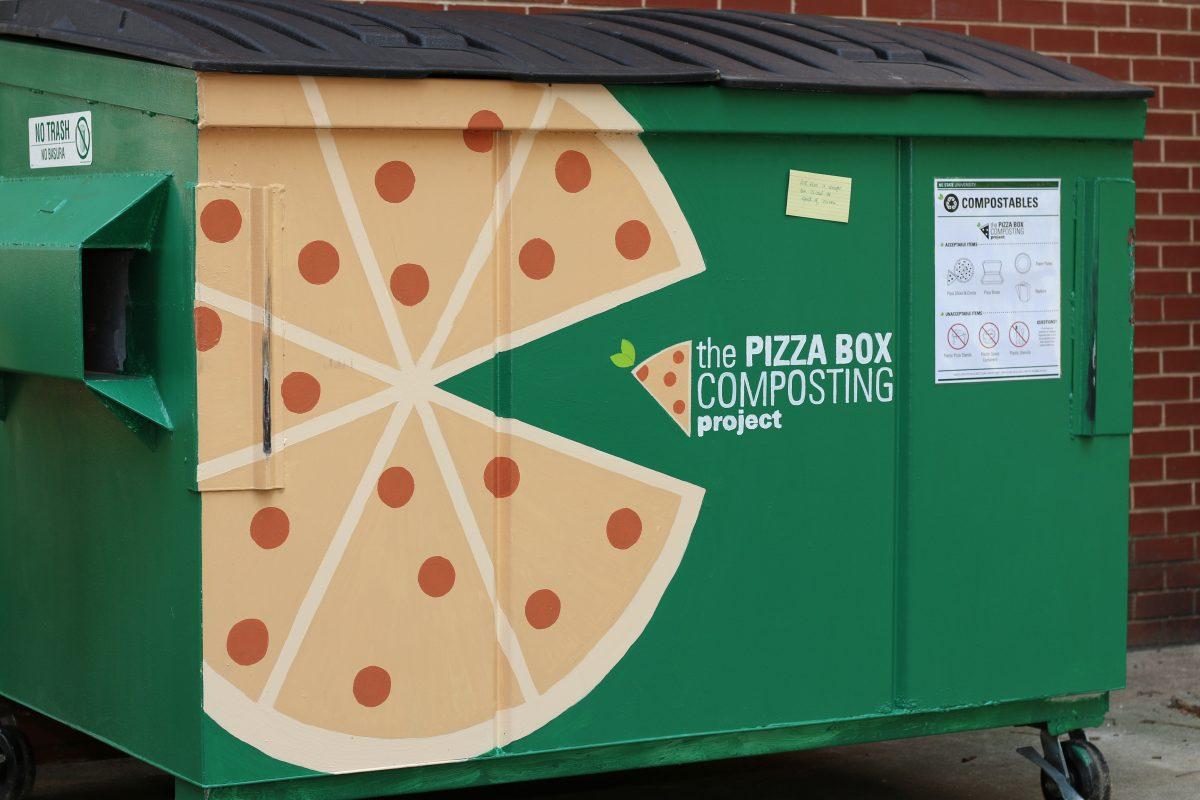The Pizza Box Composting Project is off to a steady start, having been implemented during the first week of March. However, confusion regarding what materials to place in the bins may deter the project from becoming long-term.
The Pizza Box Composting Project is a partnership between N.C. State’s Waste Reduction and Recycling and University Housing. The project has step-up bins around the University for students to place used pizza boxes in, said Lauren McKinnis, outreach coordinator for Waste Reduction and Recycling.
More than 750 pizza boxes were collected in the first four weeks of March, according to McKinnis.
However, Meghan Lobsinger, the director of the EcoVillage said the Pizza Box Composting Project is a pilot. It is currently still in the testing phase in order to determine whether or not it will be successful long-term.
“The pilot project will fail if the compost becomes too contaminated by the plastic items left in the pizza boxes,” Lobsinger said. “The plastic items are the make or break it of this project, and it’s important to educate students about them.”
McKinnis said the pizza boxes thrown into the compost dumpsters have been clean so far, but making sure contaminants in the box such as plastic-pizza stands, plastic-sauce containers and plastic utensils do not get thrown into the bins remains one of the project’s challenges.
As of now, pizza boxes are the only things that can be placed into the compost bins.
“Pizza boxes are the most common items that students try to recycle, but they couldn’t before the composts,” Lobsinger said. “Students consume a lot of pizza, and that’s a lot of waste.”
If the pilot project succeeds, the Waste Reduction and Recycling Center can add more compost bins around campus. The additional bins will not be a costly addition, but they will lead to the opportunity of composting more than just pizza boxes at N.C. State, according to Lobsinger.
Lobsinger said more student support will be needed to ensure the success of the pilot, and the project will expand if the composts can be managed with little difficulty.
Dyon Vega, a member of the EcoVillage and sophomore in environmental engineering, said he has heard different opinions from students about the project.
“Some students like the pizza box composts but they are confused about composting and knowing where to place their pizza boxes,” Vega said.
Currently, pizza box composts are located outside of Bowen and Metcalf Halls on central campus. On west campus, they are located on the south side of Bragaw and outside of Lee and Sullivan Hall.
“We hope this is a gateway opportunity to talk about more composting opportunities on campus for students.” McKinnis said.
McKinnis said other college campuses are involved with composting projects, but that N.C. State is unique because of the student involvement in designing the dumpsters by hand and in taking the lead in marketing for the project.
“I think it’s great that we have the first say about everything that happens for this project.” Vega said.
McKinnis said the EcoVillage recently hosted a pizza party for Saint Patrick’s Day and is currently in the process of producing a promotional video for the project to educate students about what goes in and comes out of the composting bins.
Lobsinger said the video will have information to teach students how to properly use the compost bins.








